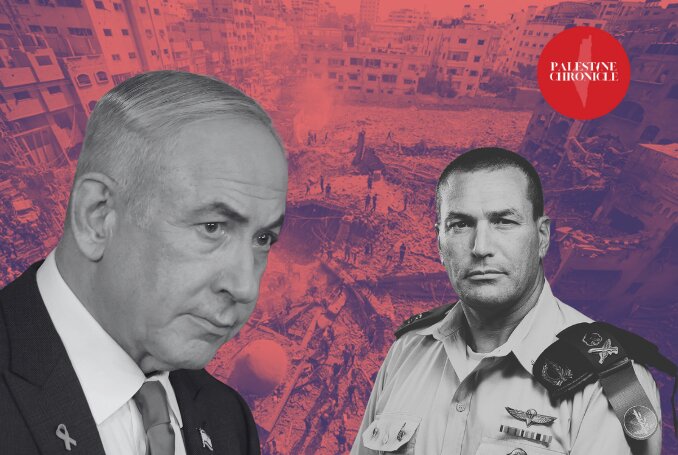Netanyahu’s crackdown on reservists risks deepening division in Israeli society

TEHRAN - The Gaza war has not only drawn international attention to Israel's military actions but also sparked a rare internal opposition from one of the nation's most elite institutions: the military reservists.
As numerous reservists openly advocate for an end to the Gaza operations, Prime Minister Benjamin Netanyahu's response has been one of severe criticism and calls for their dismissal. However, this reaction indicates much more than simply a government's need for control during wartime; it highlights a growing rift between Israel's ruling coalition and the country's established elite institutions.
Netanyahu's support for punitive actions against dissenting reservists is a strategically calculated move, closely linked to his political survival and his efforts to appease far-right coalition partners.
Israeli reservists challenging the war narrative
Understanding the importance of Israel's reservists is essential for grasping the broader consequences of the ongoing conflict. The Israeli military is frequently known as “the people’s army,” mainly depending on a reserve force which includes citizens from diverse sectors, such as doctors, tech professionals, farmers, academics, and others.
Following the Hamas attack on October 7th, Israel has experienced one of the most significant mobilizations of reservists in recent decades.
These citizen-soldiers have become essential for operations in Gaza and other areas. Besides their military function, reservists act as a vital link between the military and Israeli society, often offering a grounded, civic-oriented view on the conflict.
Some reservists have spoken out against the war publicly, demanding its conclusion or questioning its objective. Such opinions, articulated in internal communications or low-profile public statements, are not acts of insubordination but expressions of fatigue or disagreement with strategy.
Netanyahu reacted forcefully, demanding that they be dismissed to preserve cohesion and backing for the war. His stance suggests no tolerance for dissent, viewing these types of opinions as a threat to national morale and the war effort, rather than as legitimate concerns on the part of individuals serving in the war. This reaction is not only punitive but sends a clear message: dissent from elites, even in uniform, will not be tolerated.
Israel’s democratic image has been shattered
Netanyahu's tactic follows global populist trends in which leaders aim to consolidate power by delegitimizing old centers of authority in the public sphere. The military elite, once untouchable, has now become yet another scapegoat. In framing the reservists' allegations as sabotage, Netanyahu cements his bond with his political base, which is more clearly articulated in religious, nationalist, and settler ideologies.
The message is clear: loyalty to the state should now mean loyalty to the government.
Israel has always prided itself on being a strong democracy in a hostile region. But when high-ranking military officers are punished for expressing themselves, that democratic veneer gets thin. The Netanyahu government's intolerance for criticism at home belies a slide toward authoritarian governance, where opposition becomes equated with treason. Foreigners will find it ever harder to reconcile their support for Israel with what now appears to be internal repression.
The impact of this situation extends beyond Israel's borders. Important international allies, especially those from Western nations, pay close attention to Israel's democracy, focusing on free speech among its elites. Efforts to limit criticism at home, particularly during a long and controversial military operation, can influence Israel's global reputation. Countries that offer military or political support to Israel may face mounting pressure from their citizens and human rights groups to reassess their backing.
Netanyahu’s leadership is dividing Israeli society
Recent actions by Netanyahu are highlighting serious divisions between his government and key parts of Israeli society, including the military. This situation is raising concerns about the country's unity.
However, Netanyahu's involvement in military matters, especially when it targets the opinions of soldiers instead of actual misconduct, is eroding trust.
Reservists feel their dedication is being politicized, which could harm their morale and reduce their willingness to serve in the future. This development might also harm the Israeli military's reputation for neutrality and lead to distrust among soldiers.
Another issue is the growing gap between Netanyahu's government and Israel's key groups like professionals, academics, and tech experts. Before the war, they protested against judicial changes, and now they are worried about Netanyahu's leadership with far-right allies.
They fear that the government is steering away from democratic values and smart decisions. By ignoring these concerns and backing strong punishments for those who disagree, Netanyahu is alienating these vital communities.
These communities are crucial for Israel’s economy and military. While many of Netanyahu's supporters don't trust these elite groups, making his actions popular among them, this is causing more division in the country.
There is a disagreement between military leaders and the government. Israel's military needs to have rules in place, but the top commanders know that it is very important to have skilled soldiers. Many reservists, especially those from elite units, have doubts about the war's strategy.
Some commanders might share their concerns. If Netanyahu makes the military punish these soldiers, it could lead to conflicts. These conflicts would be between leaders who are thinking about long-term success and a government focused only on short-term politics.
The hostage crisis makes things worse. Families of hostages held by Hamas are angry, believing Netanyahu is keeping the war going to save his job instead of freeing their loved ones. Punishing soldiers who want peace—seen as necessary for hostage deals—only makes these families feel more ignored.
Ultimately, Israel must make a difficult decision. The country can choose to continue with internal conflicts and become more isolated, or it can strive for peace within and rebuild trust in its democratic system.
How Israeli leaders address this challenge will influence the country's stability and also shape how other nations perceive Israel. Additionally, it will affect Israel's relationships with key allies. The choices made could have serious implications for Israel's future both domestically and internationally.
Leave a Comment